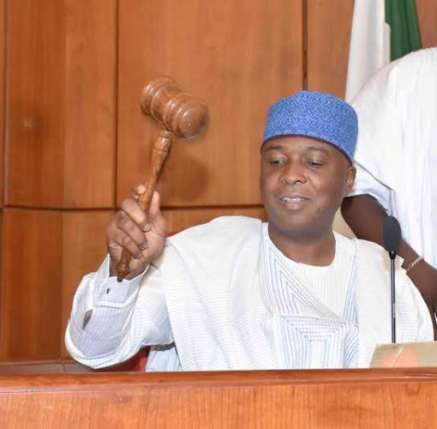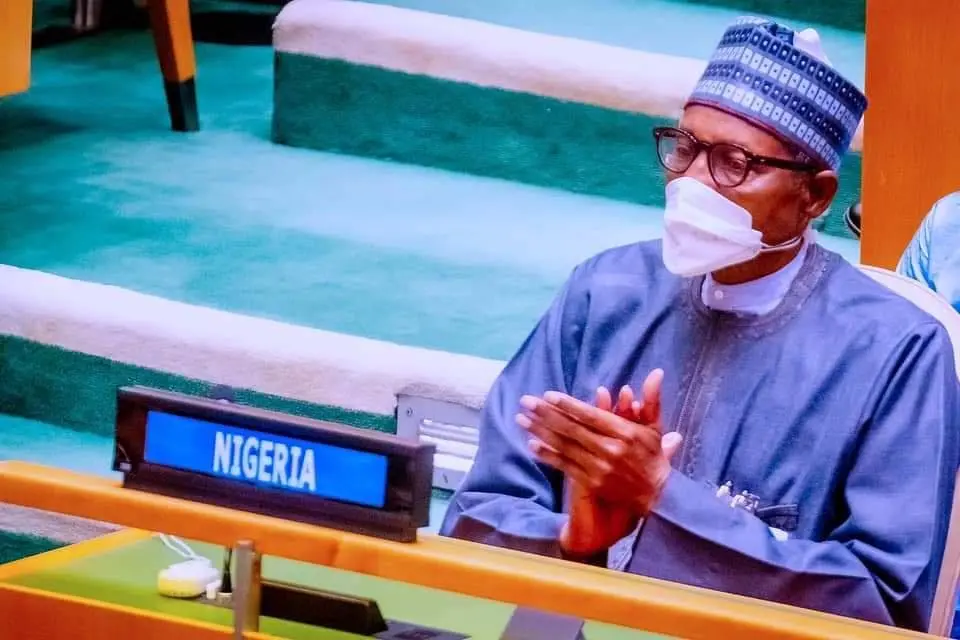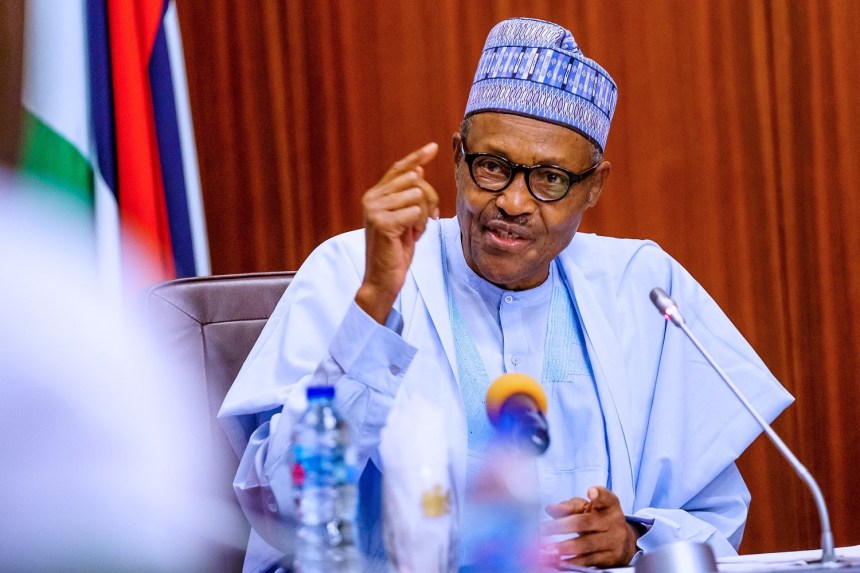Oil
Stakeholders lament non-passage of PIB

ABUJA-STAKEHOLDERS in the oil and gas industry have expressed their disappointment over the inability of the immediate past 7th National Assembly to pass the Petroleum Industry bill, PIB, which had been in the works for more than 12 years now. At the last legislation day, only the House of Representatives passed the PIB, while the Senate refused to pass it, thus nullifying the action of the lower house.
 Speaking on the development, the Executive Secretary, Major Oil Marketers Association of Nigeria, MOMAN, Mr Obafemi Olawore, said he was disappointed that the PIB did not eventually see the light of the day during the administration of Dr. Goodluck Jonathan.
Speaking on the development, the Executive Secretary, Major Oil Marketers Association of Nigeria, MOMAN, Mr Obafemi Olawore, said he was disappointed that the PIB did not eventually see the light of the day during the administration of Dr. Goodluck Jonathan.
“They did not meet my expectation in this regard. I am disappointed! I thought they would pass it, but they did not. What do we do? It means all the reforms that we have been expecting in the oil industry have been postponed.” Olawore explained that the passage of the bill by the House of Representatives was an incomplete exercise, adding that the Senate also needed to pass it before it is harmonised and sent to the President for assent.
“For us, it is a disappointment that the bill was not passed by the two Chambers before the end of the seventh assembly. Instead of the Senate to give the PIB priority, they passed 46 bills in 10 minutes,” he said. According to the Secretary General of Nigeria Union of Petroleum and Natural Gas Workers, NUPENG, Mr. Isaac Abarere, it is a surprise that the House of Reps members could pass the bill on the last day of its official duty.
“We need to know the details before reacting. If the bill was passed with the clauses which harmonise the power of the Minister of Petroleum, then it can be said to be a good thing for stakeholders. It is unfortunate that the House of Representatives had to delay the bill until the end of 48 months before passing the bill,” he added.
Also, the Managing Director/Chief Executive Officer, Sahara Energy, Mr. Kola Adesina, said that the passage of the bill by the House of Representatives cannot be relied upon as the clauses in the bills have not been clearly spelt out. He said that it is too early to celebrate since no one knows which of the clause had been altered, adding that it is impossible to agree that the bill has been passed since the Senate could not pass it.
Also, the Secretary General, the United Niger Delta Energy Development Security Strategy, UNDEDSS, Mr. Tony Uranta, said there was no justification for the 7th Assembly not to have passed the PIB that would have put an end to the recurring crisis in the nation’s oil and gas sector.
“The PIB was introduced to the National Assembly since 2007. It is disheartening that the PIB which sought to establish a legal, fiscal and regulatory framework for the petroleum industry was not given priority passage by the 7th Assembly.” “To sanitise the oil and gas sector and make it equitable and workable, curbing corruption by giving teeth to existing laws in the petroleum industry, the PIB should no longer be delayed,” Uranta said.
He however urged the Senate to remove the clause in the bill, interpreting host communities to mean the entire nation. “There is no way the entire nation will be host community in the oil and gas sector. Every region has its endowments even in the mining sector. Host communities must be interpreted to be those producing the oil and gas in the country,” he said.
He also urged the 8th Assembly to make passage of the PIB one of its first priorities. Also, Mr. Ikem Ohia, a director of Ascon Oil, said that the passage of the bill by only the House of Representatives was nothing to rejoice about, adding that the two chambers needed to have passed it before going through the process of assent to become a law.
For Mr. Dauda Garuba of the Natural Resource Governance Institute, though a lot of hope was placed on the passage of the PIB, Nigeria can no longer continue to move in a circle. According to him, the last minute passage of the Bill by the House of Representatives alone was very disappointing.
He said, “We all know that one of the chambers of the National Assembly will not get the PIB passed into law except both chambers approve of it. That is where the critical issue comes up; as what was the whole effort about by the House of Representatives if eventually the Senate was not going to pass it and was going to be harmonised to become a law?”
Garuba however said that despite the failure of the 7th National Assembly to pass the bill, the new government of President Muhammadu Buhari could still reform the oil and gas sector without the law.
Explaining the effect of the non-passage of the bill on the economy, the Director General of Lagos Chamber of Commerce and Industry, LCCI, Mr. Muda Yusuf, said the development has hampered investments by the members of LCCI that operate in the upstream sector of the oil and gas industry.
According to him, before the oil price decline, Oil Producers Trade Section, OPTS of the LCCI, said that investments in over 50 per cent of their deep water fields were uneconomical due to the delay in the passage of the PIB. “It is clear now that with the current oil price decline, it is really difficult for OPTS members to make fresh investments needed to break even until the uncertainty over PIB is removed,” Yusuf said.
– Vanguard
Oil
FG Introduces New Incentives To Revitalize Nigeria’s Oil & Gas Industry
In a strategic move to revitalize Nigeria’s oil and gas sector, the Federal Government has unveiled two key fiscal incentives aimed at attracting investment and enhancing energy security.
The announcement was made by Mr. Wale Edun, the Minister of Finance and Coordinating Minister of the Economy on Wednesday.
The first initiative, the Value Added Tax (VAT) Modification Order 2024, introduces critical exemptions for essential energy products and infrastructure, including Diesel, Feed Gas, Liquefied Petroleum Gas (LPG), Compressed Natural Gas (CNG), Electric Vehicles, Liquefied Natural Gas (LNG) infrastructure, and Clean Cooking Equipment.
Read Also: Atiku Calls For Rotational Presidency Across Nigeria’s Geopolitical Zones
These exemptions are designed to reduce living costs for Nigerians, promote energy security, and accelerate the transition to cleaner energy alternatives.
The second initiative, the Notice of Tax Incentives for Deep Offshore Oil & Gas Production, offers new tax relief options for deep offshore exploration projects.
This measure aims to position Nigeria’s deep offshore basin as a premier destination for international oil and gas investments, boosting the country’s appeal to foreign investors.
These reforms are part of a broader set of policy initiatives, known as Policy Directives 40-42, endorsed by President Bola Ahmed Tinubu.
The directives reflect the administration’s commitment to fostering sustainable development in the energy sector and enhancing Nigeria’s competitive edge in the global oil and gas market.
Business
Tinubu set to approve ExxonMobil-Seplat oil deal, expands CNG bus initiative

By Yemie Adeoye
NIGERIA’s President Bola Tinubu has announced that the protracted ExxonMobil-Seplat upstream oil divestment will be formally approved by the Minister of petroleum within a matter of days, just as he announced his government’s intention to expand the Compress natural Gas, CNG buses initiative.
The President who stated this during his Independence day nationwide broadcast stated that the move is in line with his administration’s commitment to free enterprise, free entry and free exit in investments which is the hallmark of his administration investment policy.
“Fellow compatriots, our administration is committed to free enterprise, free entry, and free exit in investments while maintaining the sanctity and efficacy of our regulatory processes. This principle guides the divestment transactions in our upstream petroleum sector, where we are committed to changing the fortune positively. As such, the ExxonMobil Seplat divestment will receive ministerial approval in a matter of days, having been concluded by the regulator, NUPRC, in line with the Petroleum Industry Act, PIA. This was done in the same manner as other qualified divestments approved in the sector.”
The President also seized the opportunity to plead with Nigerians to be patient with his administration’s reform policies. “As your President, I assure you that we are committed to finding sustainable solutions to alleviate the suffering of our citizens. Once again, I plead for your patience as the reforms we are implementing show positive signs, and we are beginning to see light at the end of the tunnel”.
“Our energy transition programme is on course. We are expanding the adoption of the Presidential Initiative on Compressed Natural Gas for mass transit with private sector players. The Federal Government is ready to assist the thirty-six States and FCT in acquiring CNG buses for cheaper public transportation.
Fellow Nigerians, while we are working to stabilise the economy and secure the country, we also seek to foster national unity and build social harmony and cohesion. Our economy can only thrive when there is peace”. he enthused.
Oil
ExxonMobil To Invest $10bn In Nigeria’s Deep-Water Oil Operations
As part of the administration’s push to improve Ease of Doing Business (EoDB), Nigeria’s Vice President Kashim Shettima has expressed support for ExxonMobil’s plan to invest $10 billion in the country’s deep-water oil sector.
Speaking on Wednesday, September 25, 2024, during a meeting with ExxonMobil executives at the 79th United Nations General Assembly (UNGA) in New York, Shettima called the investment “a clear testament to the administration’s economic reforms and investor-friendly policies.”
Read Also: Offset Accuses Cardi B Of Cheating During Pregnancy
This announcement follows news that international maritime company DP World intends to develop a multibillion-dollar port project in Nigeria.
Stanley Nkwocha, Senior Special Assistant to the President on Media and Communications, shared the development in a statement on Wednesday. He quoted Shettima as saying: “ExxonMobil’s potential investment aligns with the vision of President Bola Ahmed Tinubu’s administration for a more investment-friendly Nigeria.
We are committed to fostering an environment that supports such transformative projects.”Shettima also discussed the administration’s broader efforts to improve the ease of doing business, highlighting the “Renewed Hope Agenda,” which aims to simplify bureaucratic processes, enhance transparency, and offer fiscal incentives to attract global investors.
“Our administration has taken bold steps to unify the exchange rate, remove fuel subsidies, and implement tax reforms. These measures, though challenging in the short term, are intended to create a stable and predictable business environment in the long term,” he added.
On the oil and gas sector, Shettima mentioned that the government is revising the fiscal framework for deep-water operations to attract investment while ensuring fair returns for the Nigerian people.















